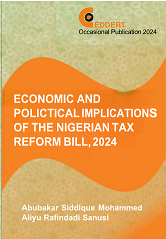Tips to manage diabetes to prevent fertility complications in men and women

- Sulaiman Umar
- 23 Nov, 2023
- 581
Uncontrolled diabetes can negatively impact fertility for both men and women hence, it is crucial to manage diabetes effectively in order to increase the chances of a successful pregnancy as the impact of diabetes on fertility encompasses detrimental effects on reproductive health for both males and females. The disruption of hormones due to diabetes is primarily responsible for hindering successful implantation and pregnancy achievement as diabetes compromises the quality of sperm, eggs and embryos while also inflicting damage to DNA structure, ultimately leading to genetic mutations and deletions.
The impact of diabetes on female fertility
In an interview with HT Lifestyle, Dr Aarti Rapol, Consultant IVF and Fertility Specialist at Ankura Hospitals in Pune, explained, “Among the various factors influencing a woman's ability to conceive, diabetes stands out as a significant contributor. Diabetes is in the form of Type 1 and Type 2. If one has Type 1 diabetes, the body fails to produce sufficient insulin for sugar metabolism, resulting in elevated blood sugar levels. Those with Type 2 diabetes produce normal amounts of insulin but experience resistance to its effects; therefore requiring higher insulin levels for sugar metabolism purposes. Additionally, gestational diabetes mellitus refers to a temporary form of diabetes that develops during pregnancy but typically resolves after childbirth.”
She elaborated, “Pregnant women with high blood sugar in the early stages are at a significantly higher risk of experiencing complications and difficulties, including congenital anomalies and miscarriages. In later stages of pregnancy, elevated blood sugar levels can lead to low birth weight and even sudden intrauterine death. Additionally, women with gestational diabetes have an increased likelihood of developing diabetes later in life and are at a higher risk of developing diabetes in subsequent pregnancies. They also face double the risk of acquiring hypertension in late pregnancy.”
The impact of diabetes on male fertility
Dr Aarti Rapol shared, “Men who have diabetes may face difficulties in conceiving a child. Diabetes can impact male fertility in various ways, such as reducing sperm quality, causing erectile and ejaculatory dysfunction, and resulting in abnormal sperm.”
How can diabetes be effectively managed to prevent fertility complications?
Dr Aarti Rapol answered, “Taking charge of diabetes involves effectively controlling blood sugar levels, which can be achieved through consistent monitoring. Maintaining a nutritious diet, quitting smoking, staying stress-free, and engaging in regular physical activity are crucial factors. If you need any more help, consulting an expert for appropriate medication options and access to relevant information is highly recommended.”
This is how infertility and diabetes are tackled together
Dr Aarti Rapol suggested, “If you are struggling to conceive due to diabetes, in-vitro fertilization (IVF) may be a viable option. IVF specialists will guide you through the appropriate treatment plan. For female infertility, in-vitro fertilization, or intrauterine insemination can be performed based on diagnosis. Intracytoplasmic sperm injection (ICSI) is beneficial for both male infertility with low sperm count, motility, or morphology, as well as female infertility with a decreased number of eggs.”
Culled from Hindustan Times





